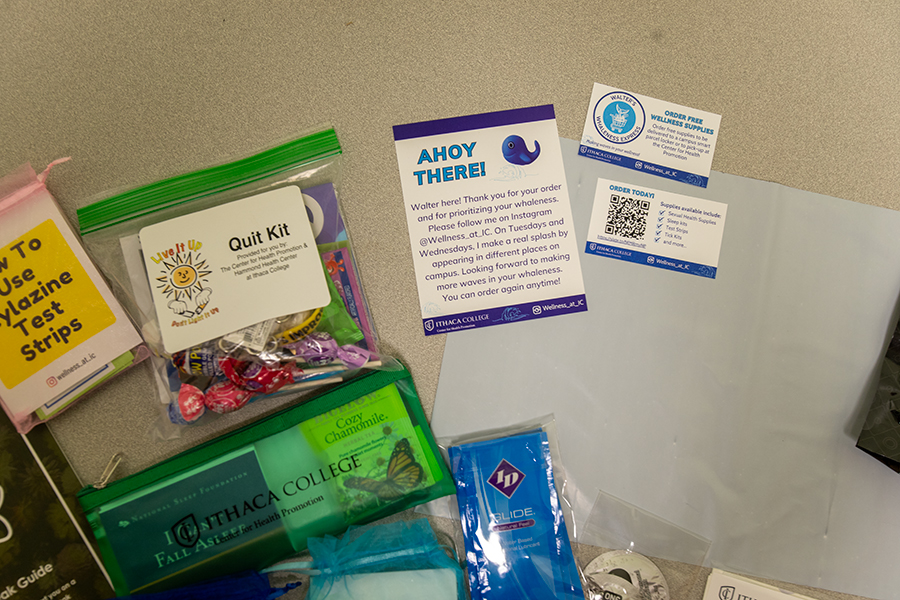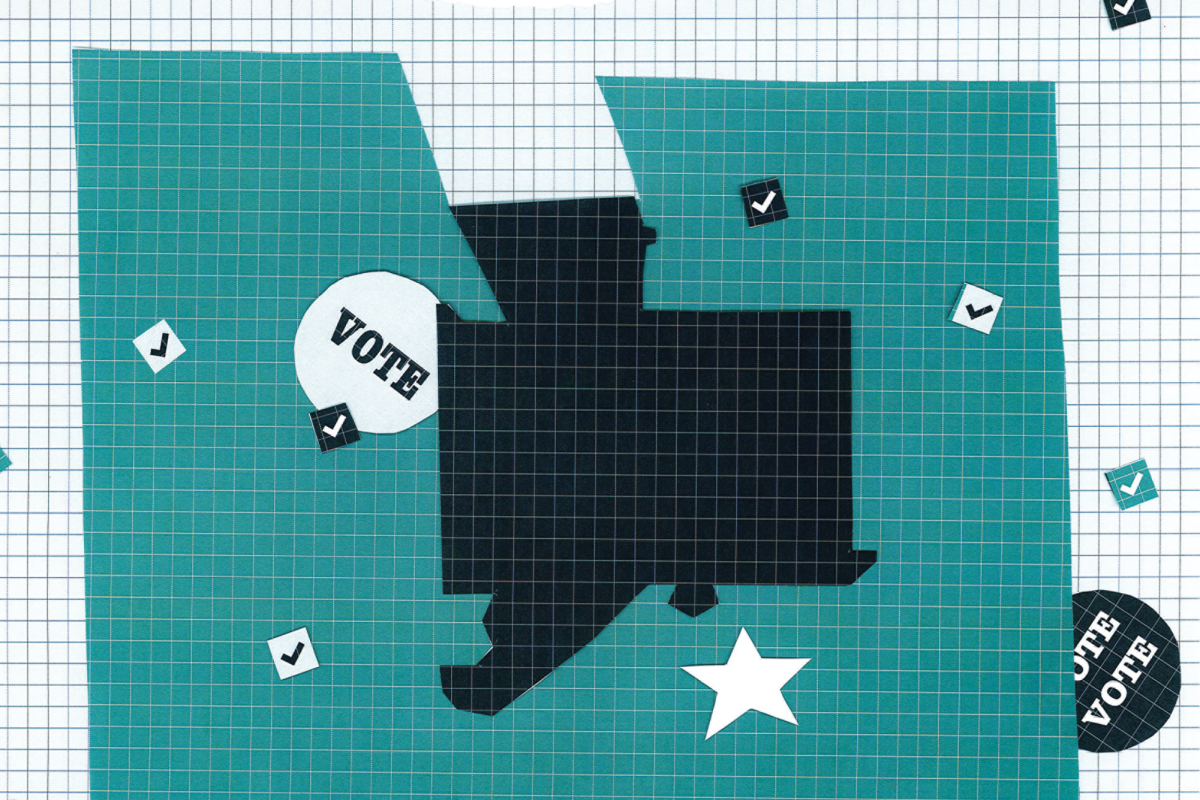In an attempt to provide free, anonymous resources for sexual, mental and physical health, the Center for Health Promotion announced the creation of Walter’s Whaleness Express on March 21. Michelle Goode, program director for the CHP, said as of April 10, there have been 95 orders for kits on campus so far and the majority of students chose to have the kits delivered to the mail lockers.
The express allows students to order kits through a protected portal. Students can choose to either pick the ordered kits up at the CHP or get them delivered to a mail parcel locker. The express offers five kits for students to order: a sexual health supply kit that includes dental dams, lubricant and condoms; a sleep kit that includes sleep masks and herbal teas; a substance use supply kit that includes tolerance break guides, fentanyl and xylazine tests; tick kits; and quit kits used to help quit smoking or vaping.
Goode said the express has had wellness supplies available in the wellness office, but the CHP wanted to make health supplies more accessible to students. Goode said she collaborated with the Division of Information Technology and Analytics and Mail Services at the college.
Goode also said via email that the only people who have access to the form data are the professional staff at the CHP and the professional IT staff. She said that while student health ambassadors help fill the orders they do not have access to the data.
“This process really started last spring and [what we decided to do was to] meet with IT,” Goode said. “We knew we needed an order form for people to log in with their college credentials and to privately place orders that would protect [students] identity and what they were ordering.”
Theresa Gustaveson, health promotion specialist at the CHP, said the CHP felt the need to create the express to bring awareness to the resources that the center offers but take away the awkwardness of asking for intimate resources.
“[Students] can still stop down at the [CHP office] and check in at the front desk of CAPS and ask for these kits, [but now] they can order online more discreetly so that that way they can feel more empowered to connect with these resources without feeling a little awkward at the front desk to ask for these things,” Gustaveson said.
Goode said the express was inspired by the idea from her former supervisor Katharine Mooney, director of Health Promotion and Prevention at Boston University. Goode said Mooney created a mailing system called the “Condom fairy,” a system that delivered sexual health supplies directly to students.
“I’m always appreciative of my time working at Boston University and consider myself a condom fairy as I was able to package those orders up,” Goode said. “We used to have the tagline, ‘We deliver so you can too.’ It was just a really fun way to increase access to sexual health supplies. So that was really the process that we modeled [the express] off of.”
The condom fairy program was able to provide 46,980 condoms over a six-semester period, according to a study conducted by Mooney. The study found the implementation of mail-in resources for students on campus was beneficial and provided safer sex on campus.
Goode said the most popular kits were the sleep kits and the center had to take the kits off the order form temporarily for more tea to come into stock.
Senior Allie Matthews, a student health ambassador for the CHP, said she helped create outreach materials for the express, like posters and social media posts and helped package supplies for the express.
“[The express allows students] to reach out and get the materials they need … without any kind of feeling that they are going to experience judgment,” Matthews said. “I think it’s difficult a lot of times for students to talk to staff members about needing certain things because they don’t want to feel judged.”
Goode said the sexual health supplies are free for the express to give out because they are provided through the New York State Department of Health. The CHP had funding available in it’s operating budget for sleep kits and the tick supplies were funded by a donor. Goode also said all supplies at the express are available while supplies last and the CHP may have to take items off of the order form if they run out of stock.
“We’re hoping that on Giving Tuesday which is coming up [April 18] donors might be so inclined to donate money or funding toward our office so we could continue to allow and expand the number of those kits that we would have available,” Goode said.
Gustaveson said the CHP included substance use supplies like fentanyl and xylazine strips to ensure that anytime a student is using or planning to use any substance that is not prescribed to them, they are using them in a way that reduces harm.
“Our office is really focused on harm reduction,” Gustaveson said. “So we’re never going to tell a student that they shouldn’t use something or that they should use something. But if they are going to use [a substance] how can they do so in a way that reduces the most harm?”
Goode said that because the CHP operates through the college, test strips are available to order for free from the Matters Network, an organization created to improve treatment for harm reduction when using opioids and other substances.
“Sometimes fentanyl or xylazine can be added to substances that surprise students,” Goode said. “They might think that they are purchasing some type of ADHD medication like Adderall or Ritalin and we’ve seen that there’s been an increase in having these substances tainted with fentanyl or other additives. It is really important to be mindful of what you’re using so that you can do it in a safer way.”
Goode said that if there is a need for more wellness kits for students in the future, the CHP would be willing to explore that.
“At this time we have everything for this semester in the order form that we are able to provide,” Goode said. “We definitely take that feedback from students about what they might want to see in the future.”















